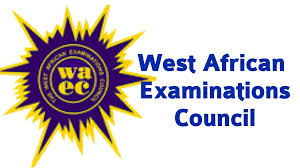EDUCATION

LAGOS GOVERNMENT RESPONDS TO WASSCE FAILURES AMID ₦1.5BN INVESTMENT
LAGOS — Despite a substantial investment by the Lagos State Government, over 31,000 students from public secondary schools failed the 2024 West African Senior School Certificate Examination (WASSCE).
During the 2025 Ministerial Press Briefing in Alausa, Ikeja, Mr. Jamiu Alli-Balogun, Commissioner for Basic and Secondary Education, revealed that 31,596 students out of 58,188 sponsored under the state’s free education program did not pass the exam. The government spent ₦1,577,794,000 covering their exam fees, yet more than half of these students failed, raising concerns about the quality of education and student preparedness in public schools.
To combat this, the state introduced a biometric and image verification system to ensure transparency and prevent duplication, confirming 56,134 students as eligible for the 2025 WASSCE sponsorship. Alli-Balogun affirmed that while the government remains committed to alleviating financial burdens on parents, it is crucial to ensure that only qualified students benefit from the program to prevent wastage of resources.
In response to the challenges, Lagos launched the Eko Learners’ Support Programme in January 2025 to assist students preparing for both WASSCE and NECO exams, aiming to improve academic performance. This initiative is part of a broader strategy to address declining exam results and introduce innovative educational solutions.
Additionally, the government focused on increasing access to education, with around 30,000 out-of-school children re-enrolled in public schools across the state. This initiative is in line with the Education and Technology pillar of the T.H.E.M.E.S+ agenda.
Governor Babajide Sanwo-Olu also approved ₦102.5 million in housing loans for teachers in 2024, covering 25 pending applications from 2020 and supporting 93 new applicants. Furthermore, between 2023 and 2024, the state recruited 4,353 qualified teachers, who were deployed to various education districts and technical institutions under the Lagos State Technical and Vocational Education Board (LASTVEB).
Alli-Balogun urged students to avoid engaging in negative behaviors such as drug abuse, cultism, and gang violence, advising them to focus on positive co-curricular activities, many of which are supported by non-governmental organizations.
In a related briefing, the Commissioner for Tertiary Education, Mr. Tolani Sule, provided updates on ongoing reforms in higher education. These include the rehabilitation of 30 secondary school libraries, the standardization of salary structures across state-owned universities, and plans to elevate the Lagos State University College of Medicine to a fully independent University of Medical and Health Sciences.
Sule also highlighted the progress being made by institutions such as Lagos State University (LASU), Lagos State University of Education (LASUED), and Lagos State University of Science and Technology (LASUSTECH), which are advancing in research collaboration and capacity-building. The state continues to invest in infrastructure, digital literacy, sports development, and the accreditation of academic programmes to ensure high standards across its tertiary institutions.
This review of the state’s education system demonstrates both the progress made and the challenges that still need to be addressed as the government works to enhance educational quality and student outcomes across Lagos.
"This represents a significant development in our ongoing coverage of current events."— Editorial Board









